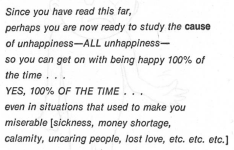Our Christ: the Revolt of the mystical genius by Constantin Brunner
I read this book in 1997. It is a 1995 translation, the original published in German in 1921.
1938 synopsis.
When I look back on my life, there is a sharp line separating before and after reading
Our Christ.
In the before time, I was something of a lost soul: history of intoxication and accompanying police trouble, problems as a student, conflict with family, professional disgrace, divorce, and ill health.
I had been raised a socialist, atheist and Jesus mythicist. I wound up as a practicing nihilist.
In the early 90s, I was trying to make a new start. In early 1997, I remarried.
A few months later, I came across
Our Christ. I was searching for clues to our cultural condition, and saw that discussion about Jesus was probably a good place to look. It was the heyday of the Jesus seminar, and there were a lot of alluring titles to examine. I found
Our Christ in the local university catalogue, and went up and signed out the book. I was immediately transfixed.
Since that time, I have read everything I can by and about Brunner. Much of it is untranslated, so I have made efforts to learn German. I contacted the International Constantin Brunner Institute and am now a Board member.
I credit Brunner with having given me my life, my true life.
His portrait of Christ is stripped of all religiosity. We have instead the great genius of prophetic Judaism. With that comes a radical re-thinking of Judaism and of its central concern,
Jahveh. For Brunner,
Jahveh is essentially nothing other than the principle of Being itself. He argues that the Shema should be translated as, “Hear, Israel! Being is our god, Being is one!” This re-envisioning opens the way for atheists to claim the entire Biblical literature as their own.
Brunner has opened to me the Bible as well as a great deal of other literature, Spinoza most significantly. Brunner has also opened the way to a general re-envisioning of science, particularly biology.
I would like to thank the iidb community for providing a forum for me to talk about all this. When I first came to iidb, it was with the idea that I would find other atheists who were interested in the historical Jesus and might appreciate what Brunner had to say. I found that iidb was pretty much locked in to the mythicist position.
Our Christ concludes with a lengthy attack on the mythicist position, and I decided to use that as my way of promoting Brunner.
A few years ago, I found a kindred spirit to Brunner, Harry Waton. I have devoted much of the past few years reading Waton’s numerous works. Through Waton, I came across the work of John MacMurray, and with him my research into philosophy comes to an end.
I am now working on praxis. My hope is to establish a group that will work to operationalize the ideas of Brunner, Waton and MacMurray.
... I don't claim that his is always an accurate and impartial look — "History will be kind to me, for I intend to write it.") ...



